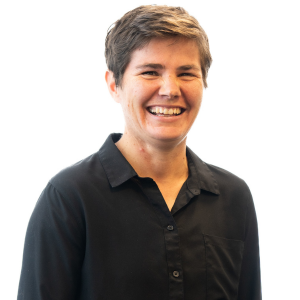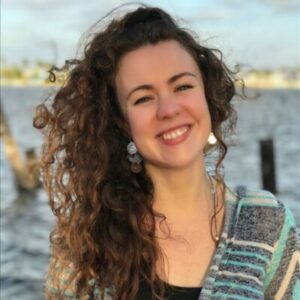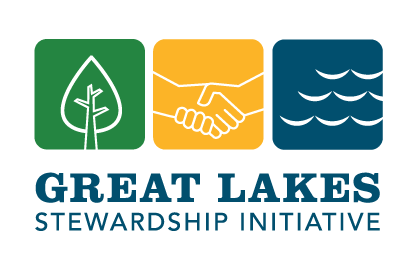OUR TEAM
Board of Directors
President
Dr. Ethan Lowenstein
Bio
Dr. Ethan Lowenstein (pronouns: He/his), is a Professor of Curriculum and Instruction at Eastern Michigan University (EMU). Ethan is the former Director of the SEMIS Coalition—a GLSI hub—where he formed and nurtured strategic partnerships, and strengthened the webs of relationships within the SEMIS transformative community. He has over two decades of experience in school systems change and designing and facilitating teacher professional learning in civic and place-based education.
In recognition of his service and impact, he has received the Champion of Engagement Award (Michigan Campus Compact), the Ronald Collins Distinguished Faculty Award (EMU), the John W. Porter Distinguished Chair in Urban Education (EMU), the Dean’s Award for Innovative Scholarship (EMU), the Dale Rice Award for Academic Innovation in AS-L and Community Engagement (EMU), and the New York City Board of Education Teacher of the Year Award for alternative schools. Before his career in higher education, Dr. Lowenstein taught high school Social Studies at Park East H.S., an alternative high school in East Harlem, New York City. Ethan lives in Ann Arbor, MI. He loves hanging out and cracking jokes with his family, cooking, feeding people, doing Tai Chi, and trying to create as much insect and plant diversity in his garden as possible, while attempting (mostly without success so far) to produce lots of food with little effort.
Vice President
Dr. Gregory Smith
Bio
Gregory A. Smith is emeritus professor of education from the Lewis & Clark College Graduate School of Education and Counseling in Portland, Oregon. His work has focused on ways educators can contribute to the regeneration of social and biotic communities.
Treasurer

Erica Johnson
Bio
Since 2013, Erica Johnson has been the place-based education specialist for the Muskegon Area Intermediate School District (MAISD) and is the current hub leader for the West Michigan Great Lakes Stewardship Initiative. Before coming to work for the MAISD, Erica spent 10 years teaching middle school and high school biology and chemistry. She earned both her Bachelor’s of Science and Master’s of Education degrees from Grand Valley State University.
Secretary
Brandon Schroeder
Bio
Brandon Schroeder is part of the Northeast Michigan Great Lakes Stewardship leadership team, which focuses on place-based environmental education that highlights the Great Lakes. As a Senior Extension Educator with Michigan State University Extension and Michigan Sea Grant, Brandon works with coastal communities and businesses in northeast Michigan to apply science-based knowledge to address Great Lakes and northern Lake Huron issues. His district includes Cheboygan, Presque Isle, Alpena, Alcona, and Iosco counties.
Director
Ellen Brody
Bio
Ellen Brody is the Great Lakes Regional Coordinator for the NOAA Office of National Marine Sanctuaries.
Director
Julia Putnam
Bio
Julia Putnam is a co-founders and principal of the Boggs School, a K–8 school founded on the principles and teachings of James and Grace Lee Boggs. She is a proud Detroiter and received each of her degrees from local universities: a bachelor’s degree in English from Michigan State University, a master’s degree in liberal studies from the University of Detroit-Mercy, and a master’s degree in education and teaching certification from Wayne State University. She is the proud mom of Henry and Lucia (a “pioneer” student at the Boggs School) and wife of fellow educator, Peter.
Director
Dr. Suzanne Knight
Bio
Dr. Suzanne Knight serves as an advisor for the Discovering PLACE, the GLSI hub based in Flint, Michigan. She is also the Associate Director of Academic Programs and an Associate Professor of Education in the College of Arts, Sciences, and Education at the University of Michigan-Flint.
Director
Todd Ambs
Bio
Retired from the Wisconsin Department of Natural Resources at the end of 2021 as Deputy Secretary, Todd served in various capacities in over a half dozen state agencies in Wisconsin and Ohio during his career, spanning more than four decades.
From 2003-2010, Todd was the DNR’s Water Division administrator, where he was lead negotiator for the State of Wisconsin during the development of the Great Lakes Compact. Todd has worked in the environmental policy field for more than 40 years. His extensive experience in both state government and nonprofit organizations includes serving as the director of the Healing Our Waters-Great Lakes Coalition, executive director of two statewide river organizations, policy director for the Ohio Attorney General and senior policy analyst for the Wisconsin Department of Justice.
In addition to being a Great Lakes Stewardship Initiative Board member, Todd also is on the board of the Wisconsin Conservation Hall of Fame, past chair and current member of the Great Lakes Commission and also serves on the Advisory Council of Wisconsin Sea Grant.
He is honored to have received awards from River Network, Healing Our Waters-Great Lakes Coalition, the River Alliance of Wisconsin, Trout Unlimited, Ducks Unlimited, the Wisconsin Wildlife Federation, and the Great Lakes Governors and Premiers for work during his professional career.
Todd graduated from Eastern Michigan University in 1980 with a Bachelor of Science in Political Science/Speech.
Director
Clay Pelon
Bio
Clay Pelon is the Director of the Center for Educational Partnerships in the College of Education and Community Innovation at Grand Valley State University in Grand Rapids, Michigan. He serves as the Principal Investigator for the Groundswell Stewardship Initiative, the GLSI hub in Grand Rapids.
Director

Lloyd Wescoat
Bio
Lloyd Wescoat has an MA in elementary education and background in service learning. Retired from Michigan Technological University, she continues to serve on the Lake Superior Stewardship Initiative leadership team supporting teachers, students, and community partners in planning and implementing place-based stewardship projects and in conducting professional learning communities – work she has done since 2008. Lloyd also owns a bookstore in Copper Harbor and supports community literacy by connecting schools, libraries, and individuals to books and programs that both inform and entertain. She has called the Keweenaw home since 1980 and is passionate about learning more, experiencing deeply, and sharing the wonders of her watershed.
Director

Anna Balzer
Bio
Anna Balzer (she/her) serves as Director of the Southeast Michigan Stewardship Coalition (SEMIS). In this role she supports the SEMIS Coalition team to co-create, shape, and implement a collaborative vision for place-based, eco-justice education in the region and to establish, steward, and deepen connections across the region and throughout a national place-based education ecosystem and help amplify the stories and impact of and bring additional resources to our regional work.
Anna has been connected with the SEMIS Coalition since 2014, first as an AmeriCorps Green School Coordinator with EcoWorks’ Youth Energy Squad (YES) and then throughout 6 years as Program Manager and Co-Director. During her time at YES, she supported place-based education and youth-led environmental justice projects in Detroit and the metro area, with a special focus on forging deeper connections between young people, community leaders, and local environmental justice priorities. More recently, Anna served as a Community Engagement Coordinator for the U.S. Department of Energy, strengthening relationships and resource sharing between the federal government and local clean energy initiatives.
Anna holds a Bachelor’s in Environmental Studies from the University of Colorado and a Master’s in Public Affairs from the University of Michigan.
Join Our Board!

APPLY HERE!
GLSI Staff
Caleb Carlton
Executive Director
Bio
Caleb grew up in mid-Michigan, where he developed an enduring connection to his home state and the Great Lakes ecosystems. This connection has informed and inspired his work and life ever since, and he is deeply grateful to be working with GLSI in service to Michigan’s communities and environment. Caleb earned a bachelor’s degree in Environmental Studies and Applications from Michigan State University and, much later, a master’s degree in Environmental Geoscience from Mississippi State University.
After his undergraduate years at MSU, Caleb spent two years as a residential environmental educator with the Inside the Outdoors Foundation in the San Bernardino Mountains of Southern California. He then began an 11-year tenure with Tremont Institute, a residential environmental learning center located within Great Smoky Mountains National Park. During this time, Caleb focused on developing school and community pathways of place-based education experiences for youth that connected across grade levels, schools, and places–from the schoolyard, to the backyard, to Great Smoky Mountains National Park. Caleb also developed multi-touchpoint place-based professional development programs for educators and pre-service education students, in partnership with the University of Tennessee and Great Smoky Mountains National Park.
Caleb later transitioned into nonprofit leadership while serving as the Director of the Smokies to Schoolyards Initiative, and later as the Development Director for Tremont Institute. Most recently, Caleb served a 2-year term as the Executive Director of Young Voices for the Planet, a national youth-based environmental storytelling and mentorship organization.
Lisa Marckini-Polk
Project Director & Program Evaluator
Bio
Lisa Marckini-Polk earned bachelor’s and master’s degrees in political science from Wayne State University. While pursuing a Ph.D. in public policy at Wayne State, she participated in research efforts focused on the impact of term limitation on the Michigan Legislature and on shifts in the representation of central cities in the U. S. Congress. She was employed by Public Policy Associates, Inc. between 1999 and 2003, where she worked on research and evaluation efforts related to natural resources, small business development, workforce development, education, customer service in the public sector, and land use.
Marckini-Polk established Civic Research Services, Inc. in January 2004. Since then, she has worked on numerous evaluations and program-development efforts with the environment as a common theme. Since 2007, she has managed the evaluation of the Great Lakes Stewardship Initiative. She has expertise in an array of evaluation strategies as well as data management, data visualization and analysis, and facilitation skills. Since 2018, she has additionally contributed to the GLSI’s business and financial planning and to development of new services.

Patty Tolly
Director of Programs & Educator Networks
Bio
Patty Tolly joined the GLSI team following an exceptional 30-year career as a teacher with Forest Hills Public Schools in metro Grand Rapids, Michigan. As a classroom teacher, Patty constantly pursued opportunities to increase the relevance and meaning of learning objectives for her students through place-based, student-led projects and experiences, such as by developing a podcast to raise awareness about non-point source pollution, working with local representatives to draft a state bill aimed to reduce car idling, and developing native gardens on the school campus.
For 15 years, Patty worked closely with Groundswell Stewardship Initiative, the GLSI Hub serving Kent and Ottawa Counties in Michigan. She was honored as the 2022 Ground “Swell” teacher of the year, and recently served as co-chair of Groundswell’s Teacher Leadership Committee. In 2023, Patty was selected as a fellow of the North American Association for Environmental Education’s Civic and Environmental Change Fellowship program, which connects education leaders and innovators from across the planet during an immersive leadership development and peer networking program. Additional past education leadership roles that Patty has held include Teacher Ambassador with Kent Intermediate School District Design Thinking Academy, and as a futurePREP’d IChallengeUth teacher. Patty holds a B.S. in elementary education from Western Michigan University and an M.S. in Educational Leadership, also from WMU.

Jan Sneddon
Administrative Associate & Conference Organizer
Bio
Jan’s relationship with the GLSI began in 2012, when she worked for Earth Force as the Director for the Center for National Partnerships and the GM GREEN program. She worked with the GLSI hubs in Muskegon, Ypsilanti, and Houghton to integrate the Earth Force 6-step environmental action civics process into their PBE strategies. This strengthened an already deep love for Michigan and the Great Lakes, and cultivated a deep appreciation for place, and she moved to Kalamazoo in 2015.
She joined the GLSI team in 2017 as the organizer of the GLSI’s 6th Place-Based Education Conference and added administrative support responsibilities in 2018.
Jan earned her Bachelor of Science from Appalachian State University and her Master of Environmental Science degree from Indiana University’s School of Public and Environmental Affairs. Much of her professional career has centered on environmental and watershed protection—from her roles as an educator with the Sound to Sea residential environmental education program on the Outer Banks of North Carolina, to limnology assistant with the Indiana Clean Lakes Program, to Volunteer Coordinator for the Indiana DNR’s Hoosier Riverwatch program, to program manager and then director of Earth Force’s GM GREEN program.
In her free time, Jan enjoys kayaking, hiking, and searching for macroinvertebrates on rocks in lakes and streams with her husband and two kids.

Mary Whitmore
Executive Director Emeritus
Bio
Mary Whitmore earned her bachelor’s degree in wildlife biology at Michigan State University. A Rotary International Graduate Fellowship allowed her to study for one year at the University of Queensland in Brisbane, Australia. With support from a series of university postgraduate research fellowships and a research award from the American Museum of Natural History, she remained in Australia, where she conducted field research and obtained a doctoral degree in zoology.
Returning home, Whitmore spent ten years as the Resident Ecologist at the University of Michigan Biological Station. There, she expanded her interests to include K–12 and citizen science education, and launched a successful and popular outreach program to make the Station’s facilities and resources more accessible to people in northern Michigan’s rural schools and communities. She helped establish the Michigan Mathematics and Science Centers Program, and served as the director of one such center for nearly two decades. She was also the Co-Coordinator for Professional Development for the Michigan Statewide Systemic Initiative, and a program officer in the W.K. Kellogg Foundation’s science education program.
In 2006, at the invitation of the Great Lakes Fishery Trust, she spent a year working with others in Michigan and beyond to develop the concept of the Great Lakes Stewardship Initiative. She has served as the initiative’s coordinator since its inception in 2007.
GLSI Hub Leadership

Leyla Sanker, Director
Discovering PLACE

Clay Pelon, Director
Groundswell Stewardship Initiative

Carla Strome, Director
Lake Superior Stewardship Initiative

Meag Schwartz, Network Coordinator
Northeast Michigan Great Lakes Stewardship Initiative

Anna Balzer, Director
Southeast Michigan Stewardship Coalition










